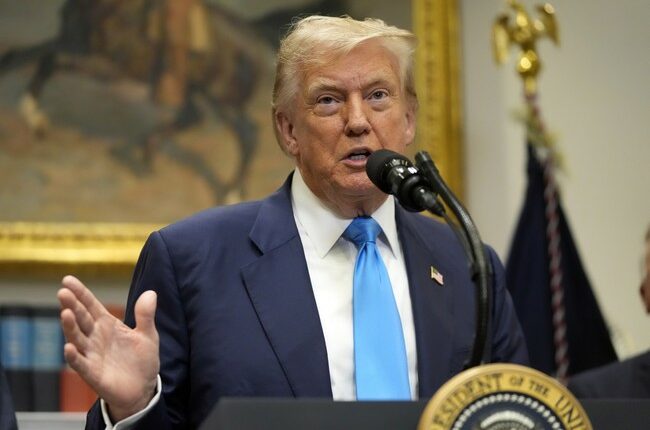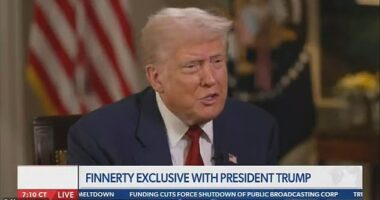
Actually, the topline number in today’s jobs report offers more hope than it seems — relatively speaking. Not all of it makes sense, however, but at a minimum, it seems clear that job expansion may have to wait for the trade negotiations to get finalized.
The Bureau of Labor Statistics reports that the US economy only added 73,000 jobs in July, which would have been one of of the lowest months of the past year. However, BLS revisions for May and June make this look like a rebound:
Total nonfarm payroll employment changed little in July (+73,000) and has shown little change since April, the U.S. Bureau of Labor Statistics (BLS) reported today. The unemployment rate, at 4.2 percent, also changed little in July. Employment continued to trend up in health care and in social assistance. Federal government continued to lose jobs. …
The labor force participation rate, at 62.2 percent, changed little in July but has declined by 0.5 percentage point over the year. The employment-population ratio, at 59.6 percent, also changed little over the month but was down by 0.4 percentage point over the year. (See table A-1.)
The number of people employed part time for economic reasons, at 4.7 million, changed little in July. These individuals would have preferred full-time employment but were working part time because their hours had been reduced or they were unable to find full-time jobs. (See table A-8.)
This data already looks a bit puzzling. If job creation dropped to a level well below maintenance in relation to population growth, one would expect to see effects in the participation ratios. The same is true of the number of part-time workers in that status for economic reasons. And that’s especially true given the dramatic downward revisions to May and June job creation numbers:
Revisions for May and June were larger than normal. The change in total nonfarm payroll employment for May was revised down by 125,000, from +144,000 to +19,000, and the change for June was revised down by 133,000, from +147,000 to +14,000. With these revisions, employment in May and June combined is 258,000 lower than previously reported. (Monthly revisions result from additional reports received from businesses and government agencies since the last published estimates and from the recalculation of seasonal factors.)
Revisions to previous reports are a normal part of these jobs reports. Revisions of a quarter-million jobs from just two jobs reports? That isn’t normal at all. Something seems very strange with this report, and it only gets stranger when looking at the data on compensation and hours worked:
Average hourly earnings for all employees on private nonfarm payrolls rose by 12 cents, or 0.3 percent, to $36.44 in July. Over the past 12 months, average hourly earnings have increased by 3.9 percent. In July, average hourly earnings of private-sector production and nonsupervisory employees rose by 8 cents, or 0.3 percent, to $31.34. (See tables B-3 and B-8.)
The average workweek for all employees on private nonfarm payrolls edged up by 0.1 hour to 34.3 hours in July. In manufacturing, the average workweek held at 40.1 hours, and overtime edged down to 2.8 hours. The average workweek for production and nonsupervisory employees on private nonfarm payrolls edged up by 0.1 hour to 33.7 hours in July. (See tables B-2 and B-7.)
The data tells us that wages are increasing by nearly 4% year-on-year and 0.3% month-on-month, both well above current inflation rates … in the middle of a three-month stall in job creation. Is that possible? Perhaps wages lag a bit on job creation, but it’s tough to believe that wages would still be going up at all if the economy had all but stopped producing jobs.
Don’t forget that we have to factor population growth into these numbers, too. The US population grows roughly by 2 million a year, and that requires a maintenance level of job creation. Economists may differ on the threshold, but no one would argue it’s as low as 73,000, let alone 19,000 or 14,000. (I assume a threshold level of 125,000 minimum, but YMMV.) Job creation that low for three straight months should mean a lot more job-market entrants than jobs available, which should depress wages and/or increase part-time work for economic reasons. We may not see that effect in the same month, but we should see those effects after three straight months, as this report indicates.
There are other strange anomalies in this report, too. The Household survey shows a drop of -260K of employed people, along with an addition of 200K to the workforce, and the Establishment survey shows only an addition of 73K jobs. And yet the U-3 unemployment rate remains unchanged and in the same narrow 4.0-4.2% band it has been in since May 2024? After a three-month stall of this scale?
Maybe BLS has the same polling issues that everyone else does. The Household survey is an actual phone poll, just like media outlets perform, and subject to the same resistance from respondents. The Establishment survey uses data from employers, which may be more reliable, but the overall effect could be returning some poor data.
At any rate, this certainly is not good news for anyone, let alone the White House, at least not those who want to see renewed economic growth. It’s possible that the completion of trade agreements will get investors back into job-creation mode, which means we may see better numbers in August and September. We’d certainly like to see numbers that make some sense from subsequent reports.








